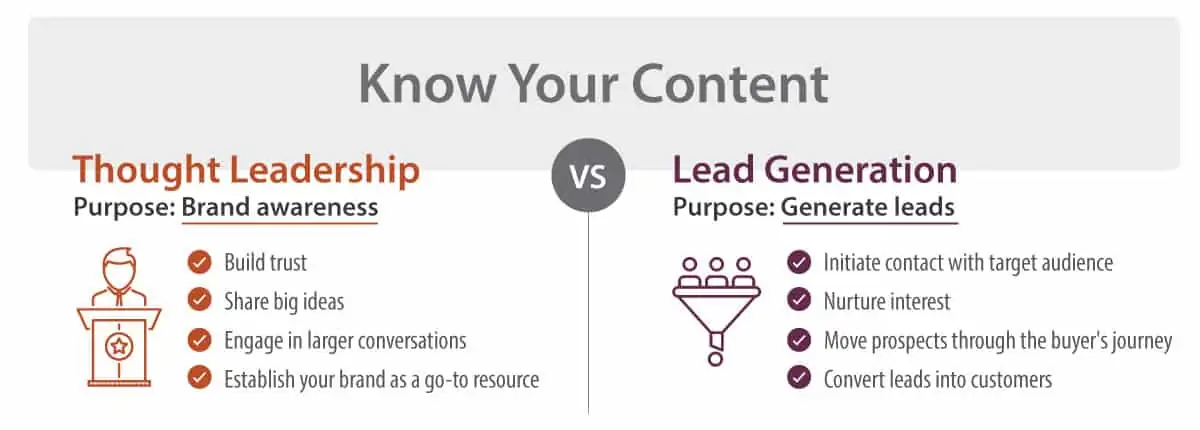Are you struggling to find new customers for your business? Do you feel like your marketing efforts are falling flat?
You’re not alone. Many businesses face the same challenge. That’s where lead generation comes in. It’s a game-changer, a strategy designed to capture interest and convert potential customers into loyal clients. Imagine having a steady stream of interested buyers knocking on your door.
Sounds appealing, right? Understanding the purpose of lead generation can transform your business and boost your bottom line. Dive in to discover how this powerful tool can work wonders for you.

Credit: www.artisan.co
Importance Of Lead Generation
Lead generation helps businesses find potential customers who are interested in their products or services. It connects companies with the right audience, increasing the chances of successful sales. By understanding customer needs, businesses can tailor their offerings, improving satisfaction and loyalty.
Lead generation is the lifeblood of any thriving business. It’s the process of attracting and converting strangers into someone who has indicated interest in your company’s product or service. Without effective lead generation strategies, businesses can struggle to grow and maintain a steady stream of customers. But why exactly is lead generation so crucial? Let’s explore its importance by looking at how it drives business success and builds lasting customer relationships.
Driving Business Success
Effective lead generation directly impacts your business growth. By consistently bringing in new leads, you create opportunities for sales and revenue growth. Think about your favorite local coffee shop. It thrives because it continuously attracts new customers while retaining regulars. This constant influx of new faces ensures that the business remains profitable, even if some customers decide to switch to the competition.
Moreover, lead generation allows you to identify potential customers who are genuinely interested in your offerings. This targeted approach means your sales team spends less time chasing unlikely prospects and more time closing deals. Imagine the efficiency and satisfaction when your team works with individuals already inclined to buy.
Building Customer Relationships
Lead generation isn’t just about numbers—it’s about quality interactions. When done right, it helps you understand your audience better and tailor your communication to meet their needs. Have you ever received a personalized email that made you feel valued as a customer? That’s the power of a well-executed lead generation strategy.
By nurturing leads through consistent and meaningful engagement, you build trust and credibility with potential customers. This relationship-building is crucial for turning leads into loyal customers. Ask yourself, would you rather buy from a company that understands and values you, or from one that treats you like just another sale?
In addition, strong customer relationships foster word-of-mouth marketing. Satisfied customers become brand advocates, sharing their positive experiences with friends and family. This organic growth can significantly boost your lead generation efforts, as personal recommendations are often more influential than traditional advertising.
In essence, lead generation is not just a task to check off your marketing list; it’s a fundamental strategy for ensuring long-term business success and fostering genuine customer connections. So, what steps will you take today to enhance your lead generation efforts?

Credit: anyleads.com
Key Strategies For Lead Generation
Lead generation aims to attract potential customers and convert them into loyal clients. Effective strategies involve identifying target audiences and engaging them through relevant content. Building relationships and offering value encourage prospects to take action, fostering business growth and customer loyalty.
Lead generation is the lifeblood of any successful business. It’s about finding and nurturing potential customers who are genuinely interested in your products or services. Whether you’re a small business owner or a marketing professional, understanding effective lead generation strategies can be a game-changer for your business growth. Let’s dive into some key strategies that can help you attract and convert leads effectively.
Content Marketing Techniques
Content marketing is more than just writing blogs. It’s about creating valuable content that resonates with your audience. Think of how-to guides, videos, or even podcasts that answer common questions your potential customers have.
Imagine you’re a fitness coach. Sharing a weekly workout plan or healthy recipes can draw in health enthusiasts looking for guidance.
Does your content solve real problems for your audience? If it does, then you’re on the right track to generating quality leads.
Social Media Engagement
Social media is not just for sharing cat videos or family photos. It’s a powerful tool for engaging with your audience. Consistent interaction with followers can build trust and keep your brand top-of-mind.
Start conversations by asking questions or hosting live Q&A sessions. This not only boosts engagement but also helps you understand your audience’s needs.
Have you ever reached out to a brand online and received a prompt, helpful response? That level of engagement can set you apart and draw in potential leads.
Incorporating these strategies into your marketing efforts can lead to significant growth. Start implementing them today and watch as your audience and business flourish.
Utilizing Technology In Lead Generation
Lead generation is crucial for any business. It helps find potential customers. Technology plays a big role in this process. Using the right tools can improve efficiency and results. Explore how different technologies can aid in effective lead generation.
Crm Systems
CRM stands for Customer Relationship Management. These systems help manage customer information. They keep track of interactions and sales. With CRM, businesses can organize data efficiently. This helps in targeting the right audience. It also aids in improving customer relationships. By analyzing data, CRM systems can predict customer needs. Businesses can personalize communication based on this data.
Marketing Automation Tools
These tools streamline marketing tasks. They automate repetitive processes. Sending emails and managing social media are examples. Automation saves time and reduces errors. It ensures consistent messaging. Businesses can focus on strategy instead of manual tasks. Analytics in these tools provide insights. They help in understanding customer behavior. Adjusting campaigns becomes easier with these insights.

Credit: www.clarityqst.com
Measuring Lead Generation Success
Measuring lead generation success is crucial for businesses. It helps determine the effectiveness of strategies used. By tracking the right metrics, businesses can refine their approach. This ensures more efficient lead generation. Understanding these metrics means better resource allocation and improved marketing results.
Key Performance Indicators
Key Performance Indicators (KPIs) provide clear insights. They help measure lead generation success. Common KPIs include the number of new leads acquired. Also, the cost per lead is critical. A lower cost means a more efficient strategy. Monitoring these indicators helps in strategy refinement.
Conversion Rate Analysis
Conversion rate analysis is vital. It shows how many leads turn into customers. A higher conversion rate indicates effective lead nurturing. This analysis can highlight areas for improvement. It ensures that marketing efforts are not wasted. Understanding conversion rates leads to better decision-making.
Challenges In Lead Generation
Generating leads aims to attract potential customers to a business. Challenges include identifying the right audience and converting interest into sales. Effective lead generation requires creativity and understanding consumer behavior.
Lead generation is the lifeblood of any thriving business, yet it comes with its own set of challenges. These obstacles can hinder progress and create frustration, but understanding them can pave the way for effective solutions. Whether you’re a seasoned marketer or new to the field, navigating these challenges is crucial for success.
Identifying Target Audience
Knowing who your ideal customer is can be tricky. You might think you know them, but assumptions can lead you astray. Consider a time when you launched a campaign only to find it didn’t resonate with your audience.
To accurately identify your target audience, start by analyzing your current customer base. Look for common traits, preferences, and behaviors. Surveys and feedback can provide a wealth of information.
Ask yourself: What does my audience really need? Their pain points should guide your strategy. This approach ensures your marketing efforts are not only seen but felt.
Maintaining Lead Quality
Quality over quantity is a mantra that rings especially true in lead generation. It’s easy to get caught up in numbers, but not every lead is worth pursuing. High-quality leads are more likely to convert, saving you time and resources.
A personal story: I once focused on gathering as many leads as possible, only to realize most were not interested in our offerings. It was a wake-up call to prioritize quality.
How do you ensure lead quality? Regularly evaluate your lead sources. Are they attracting prospects who fit your customer profile? Use analytics to track conversion rates and adjust tactics accordingly.
Would you rather have 100 leads with a high conversion potential or 1000 leads with little interest? The choice is clear.
Understanding these challenges can transform your lead generation strategy. Take the time to refine your approach, and you’ll see the difference in your results.
Future Trends In Lead Generation
Lead generation aims to attract potential customers and convert them into loyal clients. Future trends focus on personalized content, artificial intelligence, and data-driven strategies to enhance customer engagement and improve conversion rates. These approaches help businesses understand prospects better and meet their needs effectively.
The world of lead generation is evolving rapidly, driven by technological advancements and changing consumer behaviors. As businesses strive to capture attention and convert interest into action, they must stay ahead of emerging trends. Understanding these trends can be your secret weapon in crafting a more effective lead generation strategy.
Ai And Machine Learning
AI and machine learning are reshaping how businesses identify and engage potential leads. These technologies analyze vast amounts of data to predict which prospects are most likely to convert. This means you can allocate resources more efficiently, focusing on leads with the highest potential.
Imagine being able to tailor your messaging based on real-time insights. AI tools can help you do this by learning from past interactions and adjusting strategies accordingly. This not only saves time but also increases the chances of engagement.
Are you using AI in your current lead generation efforts? If not, it might be time to consider its potential to enhance precision and efficiency in your campaigns.
Personalized Marketing Approaches
Personalization has moved from being a nice-to-have to a must-have in lead generation. Consumers expect interactions that are relevant and tailored to their needs. By collecting data on your audience’s preferences and behaviors, you can create marketing messages that speak directly to them.
Consider your own experiences with personalized marketing. Have you ever received a recommendation that felt like it was made just for you? That’s the power of personalized marketing in action.
To effectively personalize your marketing, start by segmenting your audience into specific groups. Use this segmentation to craft targeted messages that resonate with each group’s unique interests and challenges.
Personalized marketing is not just about using a customer’s name in an email. It’s about understanding their journey and offering solutions that truly meet their needs. How are you personalizing your marketing strategies to capture quality leads?
By embracing these trends, you can transform your lead generation efforts and achieve better results. Stay curious, keep experimenting, and always put your audience at the center of your strategy.
Frequently Asked Questions
What Is The Purpose Of Lead Generation?
Lead generation aims to attract potential customers and convert them into leads. It helps businesses build a sales pipeline. By capturing interest, companies can nurture relationships and increase sales. Effective lead generation enhances brand awareness and customer engagement.
Why Is Lead Generation Important For Businesses?
Lead generation is vital for business growth and sustainability. It helps identify prospective customers and increases conversion rates. By targeting the right audience, businesses can improve sales and revenue. It’s essential for building long-term customer relationships and enhancing brand visibility.
How Does Lead Generation Improve Sales?
Lead generation identifies and engages potential customers, increasing the chances of conversion. By nurturing leads, businesses can turn prospects into paying customers. This process boosts sales opportunities and revenue. A strategic approach to lead generation ensures a steady flow of qualified leads.
What Are Common Lead Generation Strategies?
Common strategies include content marketing, social media engagement, and email campaigns. Businesses also use SEO and paid advertising. Offering valuable content and incentives like free trials can attract leads. Networking and referral programs are also effective in generating quality leads.
Conclusion
Lead generation plays a crucial role in business growth. It helps attract potential customers. Building relationships with these leads is essential. This process increases sales opportunities. Every business needs a strong lead generation strategy. It ensures a steady flow of new prospects.
With consistent effort, businesses can thrive. Understanding your audience is key. Tailor your approach to their needs. This creates trust and engagement. Lead generation is not just about numbers. It’s about quality connections. Focus on delivering value. Success follows when businesses prioritize their leads.

